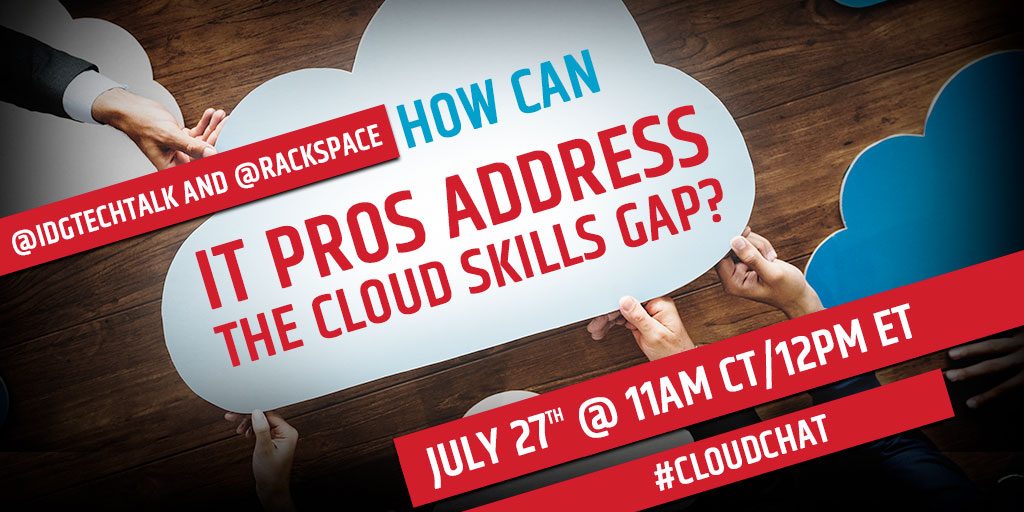

Recent Posts
What Is a Forward Deployed Engineer? The Role Bridging AI Ambition and Production Reality
February 25th, 2026
From AI Pilots to Production Results with Governed Execution
February 24th, 2026
Rackspace Technology at ViVE 2026
February 17th, 2026
Rethinking Security in the Face of the Skills Gap
February 16th, 2026
Community Impact 2025: A Global Year of Giving Back
February 13th, 2026
Related Posts
AI Insights
What Is a Forward Deployed Engineer? The Role Bridging AI Ambition and Production Reality
February 25th, 2026
AI Insights
From AI Pilots to Production Results with Governed Execution
February 24th, 2026
Cloud Insights
Rackspace Technology at ViVE 2026
February 17th, 2026
Cloud Insights
Rethinking Security in the Face of the Skills Gap
February 16th, 2026
Culture & Talent
Community Impact 2025: A Global Year of Giving Back
February 13th, 2026
The pace of technological innovation is getting faster, and many businesses are having a hard time finding the right talent to keep up.
The pace of technological innovation continues to get faster, and many businesses are having a hard time finding the right talent to keep up.
This is evident in the ongoing shortage of talented cloud engineers and architects needed to maintain and manage a variety of popular cloud platforms. It’s something known as “the cloud skills gap,” which was the topic of our most recent #cloudchat.
We were joined by Rackspace CTO John Engates, Azure evangelist Kent Kingery, and other cloud experts, including Intermedia’s Nicole Scalese, Cybric’s CTO Mike Kail, Integral Partners’ Kayne McGladrey and Bluelock’s Diana Nolting. It was one of the liveliest chats to date. We covered the following questions:
- How can IT pros address the cloud skills gap?
- Where do you see the biggest need for cloud skills: Networking? Security? Management? Containers?
- Whose responsibility is it to fill this gap? Academia? Industry? Associations?
- What role do you see managed services playing in closing the skills gap?
- How will things like machine learning and Artificial Intelligence influence the skills situation?
When it comes to addressing the cloud skills gap, the general consensus from the group was to always encourage a state of continuous learning. The nature of tech is that it's always evolving. Diana Nolting said it’s incredibly important to be aware of the changing landscape and to identify the new areas to dig into.
https://twitter.com/DianaNolting/status/890604231345922048
John Engates advised that there’s nothing like getting your hands dirty to acquire a new skill. “Learn by doing. Roll up your sleeves and build something on the cloud. That’s how Rackers learn best and my advice for others,” Engates tweeted.
https://twitter.com/jengates/status/890603957512482817
While the group said that networking, security, management and containers were all important skills — and very much needed — security seemed to take top billing in this discussion. In particular, Engates pointed out that security expertise is applicable to both cloud and on-prem environments as well.
https://twitter.com/jengates/status/890607422464720896
Others saw the need for the soft skill of communication to be in the mix. Ed Featherston, a VP principal architect at Cloud Technology Partners, was able to put it succinctly by saying all the aforementioned skills are important, “plus understanding the biz [sic] goals and be able to translate [them] to the tech.”
https://twitter.com/efeatherston/status/890606802466816001
But when it came to whose responsibility it was to fill this gap, there were widely varying opinions. Some felt that academia has been made irrelevant while others felt it was an important venue for developing critical thinking, but maybe not be best place to pick up the current tech skillset.
https://twitter.com/CloudSecChris/status/890609576260677632
https://twitter.com/kaynemcgladrey/status/890609537903869952
Regardless of where the education should come from — academia or industry — there was a large consensus that the responsibility to evolve should lie on the individual to pursue opportunities and sharpen their skills.
https://twitter.com/mdkail/status/890611140484489217
If you find yourself in a cloud skills deficit, reach out to our cloud experts at Rackspace. We have expertise across the world’s leading clouds, VMware and managed hosting to help you focus less on your infrastructure and more on your business.
Be sure to join our next #cloudchat on Thursday, August 3 at 11:00 a.m. Central Time, where the topic will be whether or not to keep IT in-house. And be sure to check out our Twitter Moment that we curated from last weeks’ #cloudchat below!
https://twitter.com/i/moments/890680178644590592
Tags:




